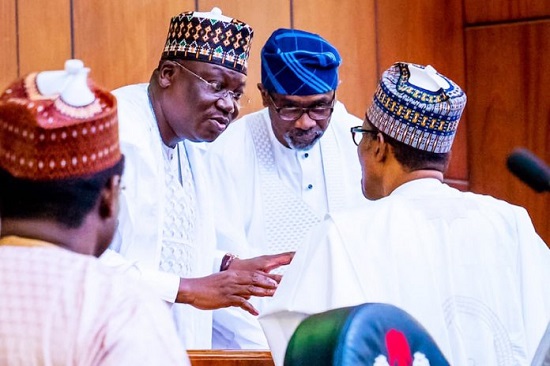This post has already been read 1471 times!
Hope that the country’s economy would rejuvenate, expressed by President Muhammadu Buhari at the presentation of the 2021 budget estimates to the joint sitting of the National Assembly is unrealistic. It certainly is not backed by glaring evidence of an economy in depression and in danger of recession. The government must gird up its loins seriously to avert a looming economic disaster.
Presenting the budget estimate, Buhari expressed optimism that the currently depressed Nigerian economy would bounce back soon. His optimism is curious if not laughable, given the government’s poor performance in managing the economy since 2015. The president’s pronouncement also has no support in the presentation he made to the National Assembly. Currently, the key macroeconomic indicators are looking downwards; and he cannot ignore the reality by raising hopes where there is none.
The Nigerian economy has not had a good outing in the past few years, particularly in 2020 when the crisis in the global oil market was compounded by the onset of the Coronavirus pandemic which led to the lockdown of the economy for the greater part of the year. This has been further compounded by the recent massive looting and destruction of public property as well as assets of small businesses across the country by hoodlums who hijacked the erstwhile peaceful protests by the youths earlier in October.
Before these developments, the National Bureau of Statistics had reported that GDP growth in the second quarter of 2020 declined by -6.1% and indications are rife that the third-quarter GDP growth rate would usher Nigeria into its third recession in its history, with an even greater magnitude of GDP decline. So what is the basis of the president’s optimism?
In trying to paint a less gloomy picture, the President had made a comparison between the Nigerian economy and that of other countries, emphasising that the country is not performing too badly. He, however, did not consider the peculiar nature of the Nigerian economy which, unlike others, precipitates a much slower recovery mechanism. The instability of the global oil market, the bulging youth population, the growing insecurity, and economic uncertainty, and unfettered wastes are challenges not generally applicable to these other comparator economies.
The non-performance of the government budget since 2015 has been quite obvious despite the nominal allocation of 30 per cent of the total budget figures to capital projects. This has not made any significant difference as not much infrastructure is on the ground to justify this, particularly with the unbridled resort to domestic and foreign borrowing, making the economy very unstable. The country has been made, currently to “sit on a keg of gun powder” with debt service payment to revenue ratio highly unsustainable, both now and in the foreseeable future. The uprising of the youths last month has only compounded the government dwindling revenue options.
Despite the new slogan by the Buhari administration of “taking 100 million persons out of poverty in the next ten years,” the incidence of poverty in the country is actually increasing, as statistics from various sources indicate. Inflation is rising at a level of over 13 per cent year on year with the likelihood of getting to 14 per cent and beyond very likely soon. The level of job losses and increasing unemployment and underemployment is greatly worrisome.
Even those with specialised skills that are highly sought after in other economies are jobless in Nigeria. And what the government has done is to promote a no-visa immigration policy for Africans which has opened the floodgates for unskilled itinerant nomads into the country compounding the employment situation and posing a serious threat to security and economic production. The earlier recorded success in rice production appeared to have whittled away with the price of a bag of rice increasing by the day despite official propaganda of a success story in rice production.
Therefore, for any semblance of recovery or “bouncing back” to take place, the government has to revisit its economic management style. It has to drastically cut the cost of governance. Despite the exceeding of the budget benchmark price of $28 per barrel with the average market price of Bonny Light crude at about $40 per barrel, revenue has still remained a challenge. Incidentally, the actual daily oil production target of 1.80 million barrels was also exceeded to 1.88 million barrels, yet the government is still battling with the economy.
With the Central Bank of Nigeria warning about depression and the Federal Government not cutting costs or creating an enabling environment for businesses, the President’s optimism is without meaning. Government should formulate policies to remove uncertainty prevailing in the business environment, as well as encourage foreign direct investment. Unless and until these issues are addressed, any hope raised on the economy is futile; and can only propel public disenchantment.



